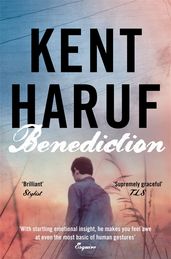Kent Haruf's Holt County, Colorado, in pictures
The fictional county of Holt, where Kent Haruf's novels Plainsong, EventideandBenedictionare set, is in Eastern Colorado. Journalist Max Liu went to explore the country with the author.
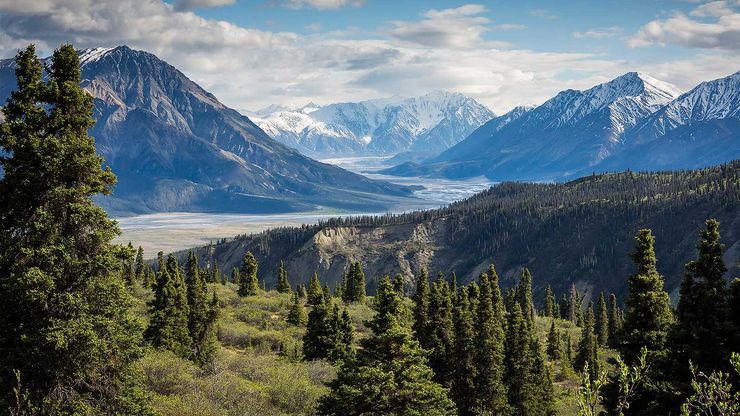
Journalist Max Liu went to Colorado to meet Kent Haruf and explore the landscape of his novels Plainsong, Eventide and Benediction.
All photos (c) Max Liu.
The fictional county of Holt, where Kent Haruf’s novels are set, is in Eastern Colorado. He lives in Salida, a small town about two hours from where we met in Colorado Springs, so I appreciated him coming out to discuss his novel, Benediction, and showing me around the plains. His pride and fascination with the natural landscape of his home state was palpable but he doesn’t idealise it: ‘This country isn’t pretty,’ he’s written, ‘but it’s beautiful.’
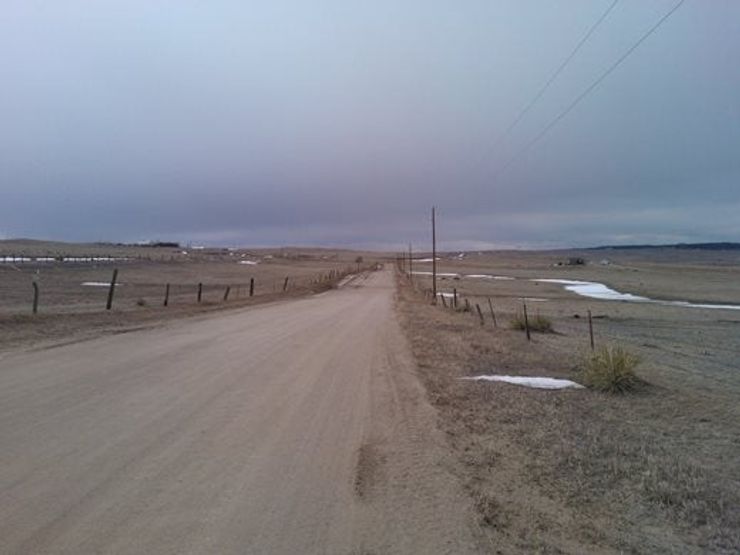
In Benediction, a character who arrives in Holt from Denver is surprised to find that rain is cherished. Now I know why: the terrain is very dry and the short-grass prairie we visited receives only fourteen inches of precipitation per year, including melted snow which trickles down from the Rocky Mountains. It’s very difficult to grow anything or graze animals and any trees have been planted.
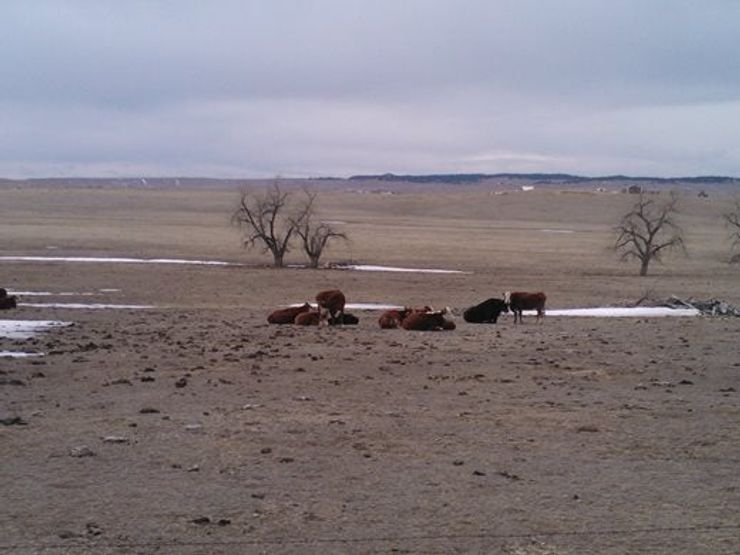
When we arrived at a cattle ranch, however, I asked if it was the kind that the McPheron brothers owned in Plainsong and Eventide. ‘That’s right,’ Haruf said. ‘A red barn and white farmhouse.’ I was moved when Haruf pointed out an abandoned homestead which, he said, probably dated from the late nineteenth century. I live amongst older buildings in England but there was something visceral about looking upon those blackened walls, trying to imagine the endeavour that occurred in there.
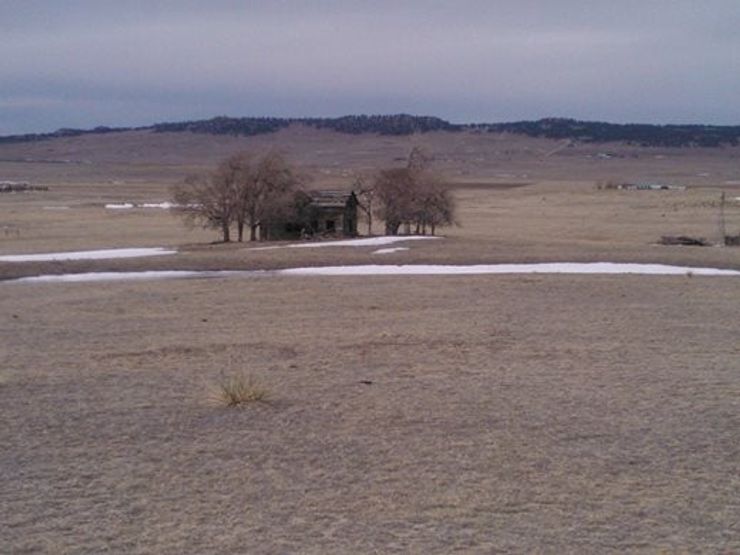
I asked Haruf if he’d read Jonathan Raban’s Badland, which explores nineteenth century settlers’ struggle to survive in Montana, and he said that his ancestors came from Germany to the badlands of North Dakota. In Benediction, Dad Lewis dreams about his mother, ‘the uninflected woman’ who wears a taped-up wedding ring and grey dress. The scene provides an insight in to Dad’s poverty-stricken upbringing and, as Haruf told me about his ancestors, I wondered if he’d conjured Dad’s mother as a
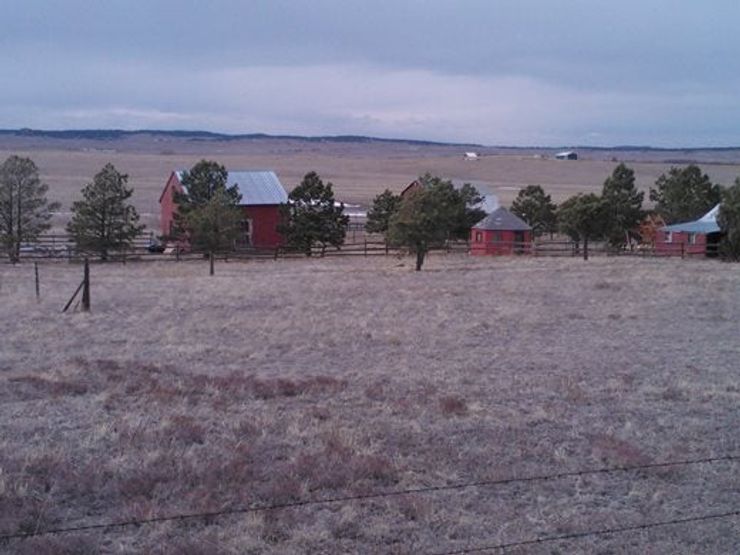
Exploring the plains with a writer whose work I’ve admired for many years was thrilling. We discussed his hero, William Faulkner, and I mentioned that I’d read The Bear on the plane from London to Denver because I heard that it was one of Haruf’s favourite works. Faulkner at several thousand feet was discombobulating and, after several hours, I peered out of the window, saw what looked like water. ‘That’s the Mississippi River, a flight attendant said. When I recounted this coincidence to Haruf the next day, he said: ‘Oh that’s perfect.‘ The Bear, he explained, alerted him to the possibilities of fiction when he was starting out and he reads the story every year.
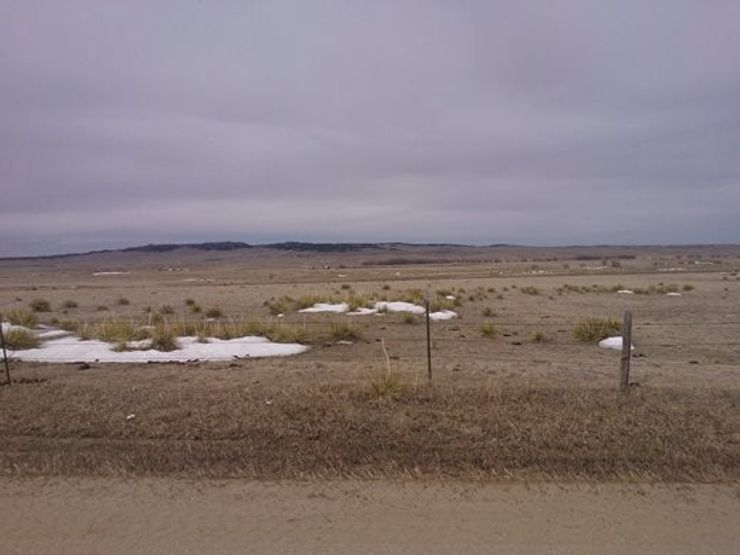
His enthusiasm for literature and landscape are infectious. Many aspects of the plains are alien to visitors from England – homesteads, soapweed (Haruf’s readers know he favours this evocative term over the common ‘Yucca’), buffalo grass – but the experience has made me look more closely at the natural world around me.
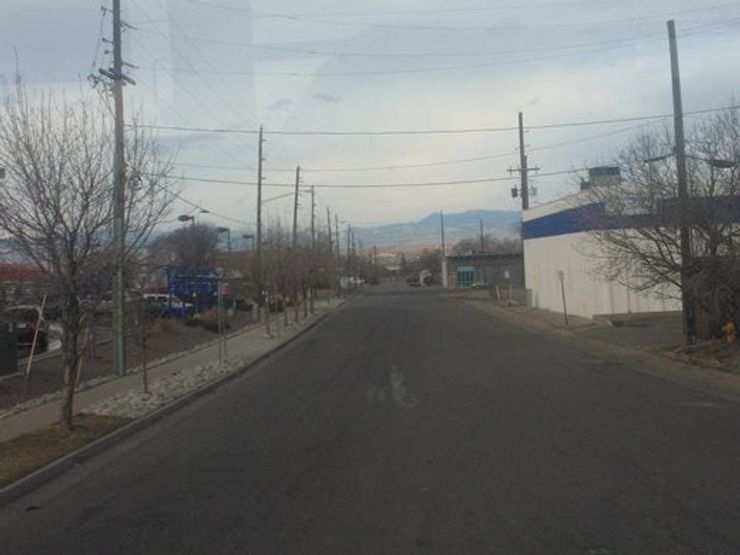
‘One more thing,’ Haruf said before we parted. ‘My name is pronounced “Haruf”.’ He demonstrated, relaxing the ‘u’, adding: “It rhymes with ‘Sherriff’”. Later it rained but not for long.
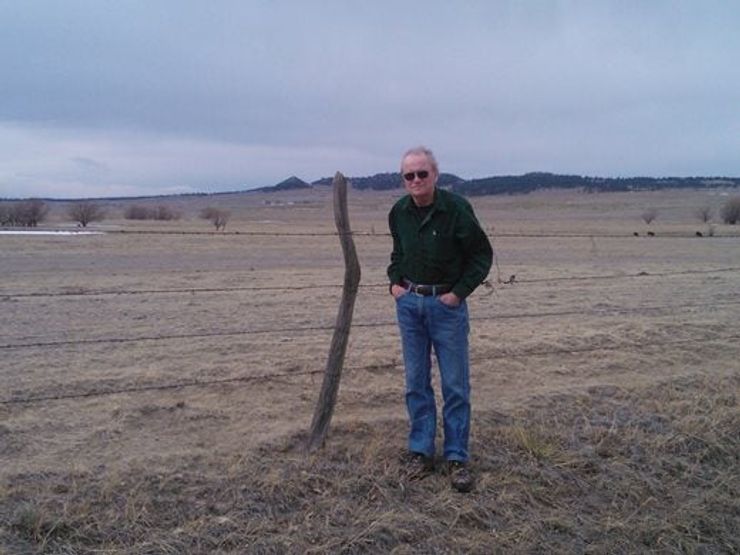
Benediction
by Kent Haruf
Following the astonishing Plainsong and Eventide, this is Kent Haruf's third novel set in the imaginary landscape of Holt, Colorado.
One long last summer for Dad Lewis in his beloved town, Holt, Colorado. As old friends pass in and out to voice their farewells and good wishes, Dad's wife and daughter work to make his final days as comfortable as possible, knowing all is tainted by the heart-break of an absent son. Next door, a little girl with a troubled past moves in with her grandmother, and down town another new arrival, the Reverend Rob Lyle, attempts to mend strained relationships of his own.
Our Souls at Night
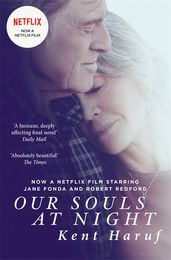
This is a love story.
A story about growing old with grace.
Addie Moore and Louis Waters have been neighbours for years. Now they both live alone, their houses empty of family, their quiet nights solitary. Then one evening Addie pays Louis a visit.
Their brave adventures form the beating heart of Our Souls at Night, Kent Haruf's exquisite final novel.
Now a major film starring Robert Redford and Jane Fonda.
